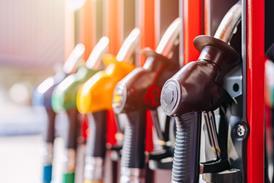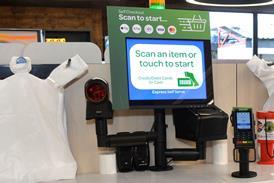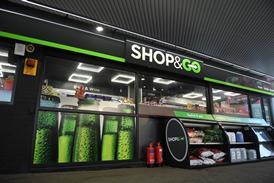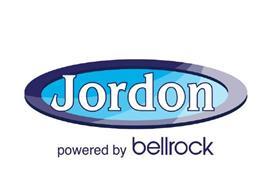Take one look at the growth figures for the former Coffee Nation self-serve machines which have been rebranded as Costa Express, and it’s impossible to deny the power of a major brand. It’s been just over a year since Costa Coffee acquired Coffee Nation, creating a sub-brand of its globally renowned handmade mocha Italian blend of coffee. And, since the rebranding process began last July, forecourts with these machines have seen their coffee sales increase by 20-30% .
Scott Martin, managing director of Costa Express, says the explanation for such a hike in sales is simple: "Costa is a brand leader in the UK. It’s an instantly recognisable brand and those people who didn’t buy from Coffee Nation, perhaps because they didn’t know the brand or didn’t like to buy from machines, are experimenting more.
"A lot of people think that machine coffee is worse than barista coffee but the Costa brand transcends that scepticism. Costa Express came along almost overnight there was no pre-warning but now it sits quite comfortably within the Costa family. The whole point of Costa Express is that we want to sell excellent quality coffee at locations where you wouldn’t normally have access to it. People have accepted the product, like the product and in taste tests it’s coming out very highly."
For the retailer, it’s the same machine, different product. "I don’t think it’s a better system from the retailer’s point of view because Coffee Nation was all about taking out the complexity of what is a foodservice-style product and making the process as simple as possible for the retailer," says Martin. "A big part of what we were doing over the first four months was getting the product right and making sure the product was consistent in store."
From 850 former Coffee Nation machines in forecourts, Costa Express now operates just over 1,200, selling two million cups a month. There are now 250 Coffee Nation units yet to be rebranded and the company has set its sights on signing up 300-400 forecourts a year.
With an average investment value of £10,000 per Costa Express machine, Martin says that around half of all forecourt sites would struggle to sell enough cups a day to make it financially viable. But the company is working on a machine for the 15-20 cups-a-day market in a bid to bring the Costa brand to smaller forecourt retailers.
"We’re working very hard to turn the economic model on its head and work out how to deliver product on a smaller scale," says Martin.
"We’re looking at which features we can cut out to drive down the capital cost without compromising on the quality of the coffee. It’s about 12 months development away."
Major inroads
The Subway brand has been making big inroads into the forecourt sector, and its site numbers are continuing to swell. There are already more than 1,500 Subway outlets in the UK and Ireland, with more than 100 on petrol stations and a further 50 forecourt sites in development.
At the end of January the company announced that it planned to open 600 new stores by 2015, and forecourts are now one of Subway’s major focuses for this expansion. The company plans to treble the number of stores in what it calls ’non-traditional developments’ such as forecourts over the next five years.
Trevor Haynes, area development manager for Subway UK and Ireland, says that as a globally renowned brand, Subway has gained the trust and support of millions of customers worldwide. "As any business person knows, the strength of a brand is something that really sets you apart from the competition," he says. "We know that people like to buy brands because they trust the product and know what they can expect in terms of quality and price buying lunch from a Subway store is no different.
"Our customers keep coming back because they recognise, trust and value the brand, and know that Subway stores offer a wide range of great value subs and salads that can be customised to their own requirements and are made fresh in front of them," he adds. "It’s this support and desire for Subway subs that has continued to drive the growth of the brand and, in turn, attract new customers and new franchisees."
Without the need for grills or fryers, a Subway store is a relatively simple operation with an adaptable approach to the size and physical layout of its stores, says Haynes. "Outlets can be as small as 300sq ft and still carry the full menu," he explains. "The format also means that staff levels can be increased at peak times and down-scaled to one employee during quiet periods."
Taking on a franchise like Subway means the retailer is fully supported in running an extensive food-to-go operation. "There is a great deal of support given by the Subway franchise team when franchisees are setting up and running their stores," says Haynes. "Franchisees are offered help and advice from local consultants and development agents on the very best operational procedures. This support provides franchisees with controls and checks so that they can establish that the store is going to hit the right targets and continue to develop. The fact that over 70% of all new Subway franchises sold worldwide are sold to existing franchisees speaks volumes," he adds.
A potential newcomer to the forecourt sector is Domino’s Pizza. Traditionally operating on the high street with standalone pizza takeaway outlets, the brand is branching out into alternative locations. The company has already opened its first outlet in a shopping centre in Basildon, Essex, and a spokeswoman for Domino’s Pizza confirms: "As part of our growth plans for the future, we are trialling a number of new concepts. One of the new concepts we are currently looking into is forecourts." The full approximate cost of opening a Domino’s Pizza store is £280,000, exclusive of VAT, of which £120,000 must be liquid funds.
The price is based on the average cost of a new-store build in 2010. Domino’s says it will introduce you to the main UK banks who should be able to offer a suitable funding scheme.
An average Domino’s store creates around 30 new jobs, both full-time and part-time positions.
Each new franchisee will be required to attend an 18-day franchise development programme which is held at Domino’s Training and Development Centre in Milton Keynes.
The programme incorporates both classroom and practical training sessions to meet the requirement of becoming an approved Domino’s franchisee.























No comments yet